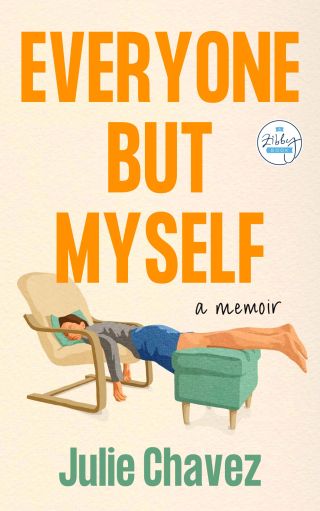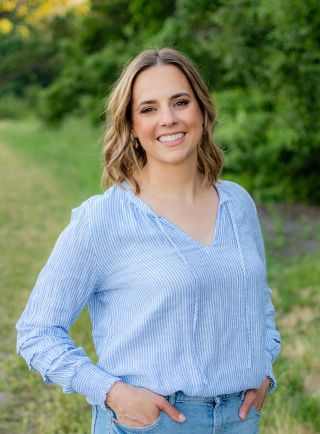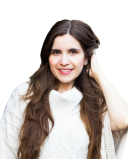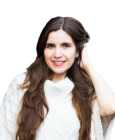Anxiety
Speaking to Millennial Moms’ Anxiety
Author Julie Chavez shares her experience of anxiety in the midst of motherhood.
Posted April 23, 2024 Reviewed by Kaja Perina
Key points
- Millennial moms are struggling with anxiety and other mental health disorders more than previous generations.
- Parental anxiety can have negative social, emotional, and behavioral impacts on children.
- Author Julie Chavez shares her personal experience with anxiety in the midst of motherhood.

While postpartum depression and anxiety are becoming more well-known and understood, many mothers struggle with anxiety and depression later on in their parenting journey, often due to burnout from trying to do it all with so little support.
Balancing career obligations, growing children, and a wide range of emotions that often get neglected can trigger an overwhelming mental health crisis in some moms. In author Julie Chavez's case, debilitating panic attacks stopped her in her tracks, waving a red flag that her mental health was suffering in the midst of what her therapist described as a "mid-mom crisis."
Chavez is not alone. In fact, one study found an increase in generational rates of persistent generalized anxiety disorders and a range of less persistent disorders in millennial moms (Najman et al., 2021). While it is not clear whether this finding reflects actual changes in symptom levels over a generation or whether there has been a generational change in the recognition of and willingness to report symptoms of mental illness, it is notable that today's moms are struggling with their mental health.
When moms struggle, their entire family struggles too. Research has demonstrated that anxiety not only lowers the quality of life for the mom suffering from anxiety, but it also can lead to negative emotional, behavioral, and social outcomes for her children, no matter where they are in their development (Sweeney, S., & Wilson, C., 2023).
Reading can be therapeutic, and sharing our stories offers an opportunity to feel less alone in our inner struggles with mental health (Jack, S. J., & Ronan, K. R., 2008). Chavez shares her reflections on her mental health journey in her memoir, Everyone but Myself, published this year by Zibby Books.
1. The first line of your book reads, “In the moment it’s happening, a panic attack can convince you of nearly anything.” Share a bit about experiencing your first panic attack at 38—what precipitated the onset of debilitating anxiety at this time in your life?
I had just returned to work after nearly a decade as a stay-at-home mom, but I hadn't made the right adjustments. My husband was still traveling for work, and I took 30 hours and plopped it onto an already full schedule (because stay-at-home moms may not get paid, but they are definitely working). The conditions left me depleted and tired, but the more insidious effect was my disconnection from my feelings. Quite simply, I didn't make time to feel tired or communicate my loneliness or connect with my husband (travel makes this a challenge even when there's plenty of time).
When I had a scary reaction to an immunotherapy shot that left me terrified of dying, I didn't take the time to deal with the emotions and fear around that event. I simply kept moving, which left me in a precarious place. My first panic attack was related to having buried that traumatic moment, and the debilitating anxiety sprung out of Pandora's box after the first panic attack. It was incredibly destabilizing. I see, in retrospect, that my body was demanding my attention.
2. You masterfully describe the inner life of a mom trying to hold it all together for her children in the midst of a personal mental health crisis. How do you think parents can care for their mental health in such a demanding season of life?
I believe it's essential that parents have space to care for their mental health in a way that's deep and non-performative (bubble baths aren't an instant cure-all, sadly).
My major tenets are exercise, therapy, time with friends, and downtime (typically, for me, this is reading). I have to schedule these in, and it's challenging to protect your boundaries. But I believe that parents can reframe it well by considering what habits they're passing down to their children. We are showing them, in a very literal way, how to protect themselves and their own peace. Otherwise, we will forever be at the mercy of the urgent, neglecting the important.
3. In Chapter 3, you talk about batting down the anxious thoughts that popped into your head like a game of “Whac-A-Mole.” You use another metaphor about being a balloon, and anxiety is the helium that lifts you out of the present moment. How have metaphors helped you?
Metaphors are helpful to me because anxiety is slippery and often looks different for individuals. I go by what Mister Rogers told me when I was small: What's mentionable is manageable. If I can get my head around the concept of what's happening, I feel better. This is where therapy is a wonderful tool to fact-check our thoughts and smooth out our bad mental habits.
4. In your book, you talk a lot about the pressure to be the perfect mom. How do you see society’s standards for motherhood impacting our mental health?
The modern world doesn't help, but I believe that motherhood is hard because it's important. Loving my children and helping them grow is a privilege, and I want to do it justice. Keeping them safe, teaching them well, helping them understand themselves: It's a tall order.
But I think where society makes it hard is by refusing to acknowledge the mental load and by perpetuating a system that has so little support for parents. Most parents are working outside the home, but we still ask for school volunteers like it's 1980 and most moms are staying at home. The system continues to rely on the unpaid labor of parents, and it's one of the conditions leading to burnout.
5. You introduce the idea of a “mid-mom crisis.” Can you share more about this and how it impacted your mental health at the time?
The mid-mom crisis is the point at which your kids move from needing you in a small-child sort of way into greater independence. It's a moment in which you can see, over there on the horizon, that they will one day move into their own lives. This is how it should be, but you know it will be a massive change.
If you're a person who anticipates and looks ahead anxiously, this can be scary and hard. Having a name for this was very helpful for me. It honored the closeness I have with my boys but also acknowledged that there was work to do. It was time to turn back to myself and find more of who I wanted to be in the next season of life.
6. You mention several books that you read during this difficult season that played a part in your healing—how has reading helped you cope with mental health struggles? What books were most healing to you (if any), and what did you avoid?
Reading is grounding for me, especially when I take time to sit down and read (though I confess that I listen to a lot of audiobooks while shelving books at the library). Thrillers were a no-go when I was at my lowest because they introduced extra stress, especially since I'm an immersive reader. Healing books included memoirs like those from Kelly Corrigan, Gift from the Sea by Anne Morrow Lindbergh, and upbeat novels like The Rosie Project. These were books that either made me feel seen or simply made me feel happy and hopeful.

7. How can readers put their own needs at the top of their to-do list in order to protect their mental health?
Make appointments—with a therapist, with a doctor, with a friend, with yourself. Set timers when you're at home because there will always be something else to attend to (the timers force you to prioritize and ask what really needs to get done on a given day). Rest isn't something to be earned; it's a wholly necessary part of keeping ourselves healthy, both physically and mentally.
And remember to be kind to yourself. You're doing your best, both when you're crushing life and when life is crushing you. Everything changes, so sometimes all there is to do is hold on.
Learn more about Julie Chavez by visiting www.juliewriteswords.com.
References
Najman JM, Bor W, Williams GM, Middeldorp CM, Mamun AA, Clavarino AM, Scott JG. Does the millennial generation of women experience more mental illness than their mothers? BMC Psychiatry. 2021 Jul 17;21(1):359. doi: 10.1186/s12888-021-03361-5. PMID: 34273942; PMCID: PMC8285825.
Sweeney, S., & Wilson, C. (2023). Parental anxiety and offspring development: A systematic review. Journal of Affective Disorders, 327, 64–78. https://doi.org/10.1016/j.jad.2023.01.128
Jack, S. J., & Ronan, K. R. (2008). Bibliotherapy. School Psychology International, 29(2), 161–182. https://doi.org/10.1177/0143034308090058




